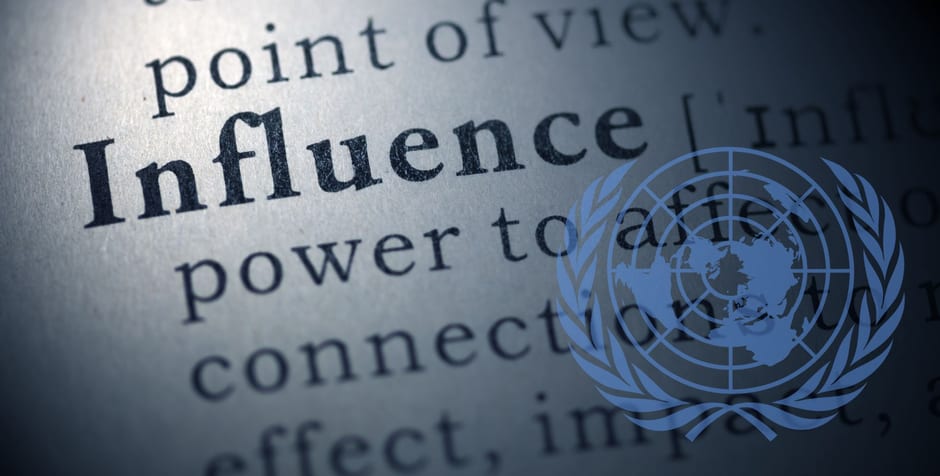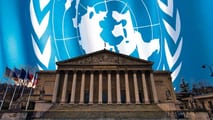The recent scandal in the European Parliament raised the question of how NGOs, private foundations and states influence international bodies. As the European Centre for Law and Justice (ECLJ) is alerting on the hidden financing of several UN experts, one of its associate researchers explains the stranglehold of certain actors on the entities supposed to defend human rights...
Article published in French in L'Homme nouveau, n°1774, December 31, 2022.
The international human rights system is marked by a phenomenon of “capture” and “privatization”, two words that can be combined in one: “influence.” By "international human rights system," we mean the international courts responsible for enforcing the conventions protecting these rights (the European Court of Human Rights and the Inter-American Court of Human Rights, for example) as well as the international organizations specialized in this field (the Office of the United Nations High Commissioner for Human Rights, the United Nations Population Fund, UN Women, the United Nations Development Programme, etc.). This phenomenon of capture exists in different ways: financing of institutions, institutional participation in their work, intervention in the nomination procedure of their members, and the creation of a tight ideological bubble around them.
Influencing Human Rights: A Worthwhile Investment
The financial reports of the various institutions we have cited show that they are partially funded by voluntary private contributors. These main contributors are most often the neoliberal foundations Open Society, Ford, Oak, Gates, and MacArthur. Some companies like Microsoft, Google, or Facebook also fund the human rights system. They are not the only ones, however, since major universities of the Anglo-Saxon system (often themselves financed by the same neoliberal foundations) also provide their support. Some states are also particularly active, such as the Netherlands or Norway, by financing institutions well beyond the ordinary state contributions. The question then arises as to what motivates these different actors to finance the international human rights system in this way.
For neoliberals, democracy and human rights are a means of exporting their ideology throughout the world. Human rights courts and international human rights institutions become strategic places because of their influence and power over states. This is especially true since NGOs can easily intervene, and neoliberal funds can fill the economic void resulting from the lack of regular state contributions to their advantage. This is an opportunity for these large foundations to advance their vision of human rights, i.e., their desire to create a society open to the hegemony of the market and more specifically to the increase of private profits. The idea of segmenting society into minority groups is a way to liquefy society, to make it permeable to the imposition of an open global market with no barriers to the free movement of goods and people. The economic interest of these groups of influence is to push states towards multi-ethnic societies governed by “international states”.
The new moral: the ideal of the “open society”
Interviewed by the ECLJ, a former UN expert spoke of “silent corruption” in relation to this funding. It is still necessary to understand what “corruption” means. In addition to its financial aspect, which we can see is now splashing the European Parliament, corruption refers above all to the intellectual, moral and ideological weakening of the people who evolve within the human rights mechanisms (judges, UN experts...) which leads to the imposition, by external agents, of an agenda and themes. It can be explained either because these human rights actors are not always equipped to detect and counter the influence they might be under, or because they adhere to the messages of those who influence them. Influencers are those who possess the economic and cultural hegemony necessary to dominate the system.
For the neoliberals, the challenge is to dissolve the traditional sovereign “closed societies” by using international litigation and the influence of those who are the reference in the field, for example, the UN experts or the judges of the ECHR. The objective is to achieve the “open society,” the ideal of what Marcel De Corte called the “dis-society”. This requires a cultural homogenization between States and therefore a fight against specificities, traditions and historical and religious heritages. The former UN expert on health expressed this idea well in one of his reports: “Xenophobia, ‘traditional family values’ and other forms of discrimination undermine social cohesion, to the detriment of all”. He received at least $425,000 in direct funding from the Open Society during his tenure. Thus, in countries with a Christian tradition, the litigation brought before the European courts is oriented towards the emancipation of religions, the “right to abortion” and euthanasia. This strategy has an economic logic because, as Dr. Gaëtan Cliquennois, a researcher at the CNRS, explains, “economic globalisation relies on cultural globalisation”[1].
A binary moral order
Very often we have the feeling to see the imposition of a binary moral order. In our secularized societies, a new symbolic clergy appears. They are the “prophets of human rights.” This new clergy imposes in an implicit way a morality which must guide the political action. And even before imposing it, it announces it. This is what Charles Péguy wrote: “Everything begins in mysticism and ends in politics”. In a society of radical atheism, the mysticism of progress teaches man that he must be the measure of all things, that the autonomy of his will founds reality. If not true, this idea is profitable, and some “philanthropists” have understood it well.
______
[1] Cf. Gaëtan Cliquennois, European Human Right Justice and Privatisation – The Growing Influence of Foreign Private Funds, Cambridge University Press, p. 257.














